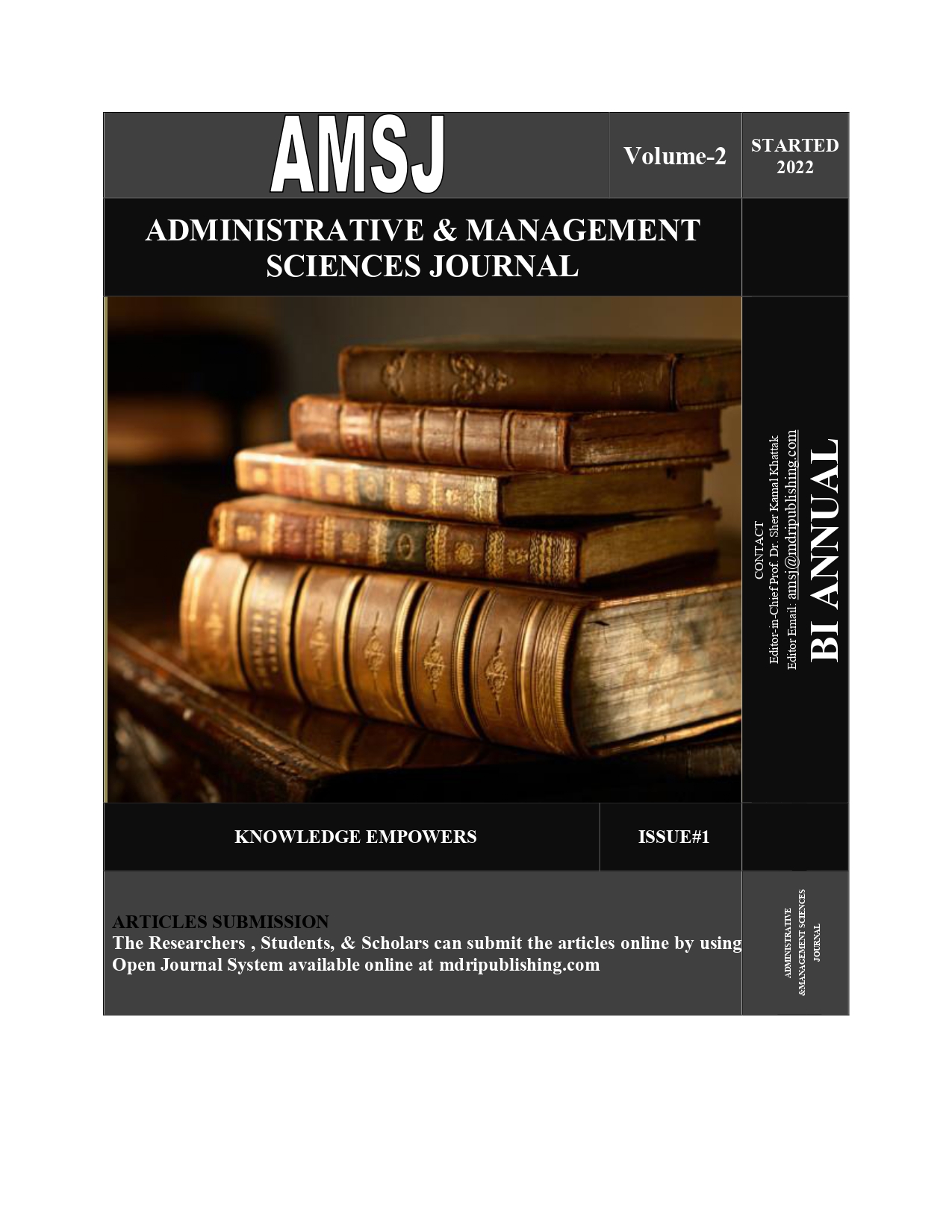Household Traits and Its Impact on Offspring’s Educational Inclusion: Empirical Evidence from Urban and Rural Areas of Pakistan
DOI:
https://doi.org/10.59365/amsj.2(1).2023.74Keywords:
Household income and Expenditure, Tribal Norms, Parental Education, Offspring Schooling Inclusion, Parental PerceptionAbstract
This study used household income and expenditure, parental perception, believes in tribal norms and voice of mother in the decision making as independent variable to their impact on child’s schooling decision compared with its alternate available activities. In this study we used a unique data set collected from various districts of Pakistan for a child labor and education project. The observed relation between income inequality and parental education and the schooling of their children is calculated through a simultaneous equation model. The results reveal that along with the income and education of parents their perception and the role of the mother in decision making have a positive impact on the offspring’s schooling. However, belief in tribal norms has a negative significant influence on the schooling of the offspring.





